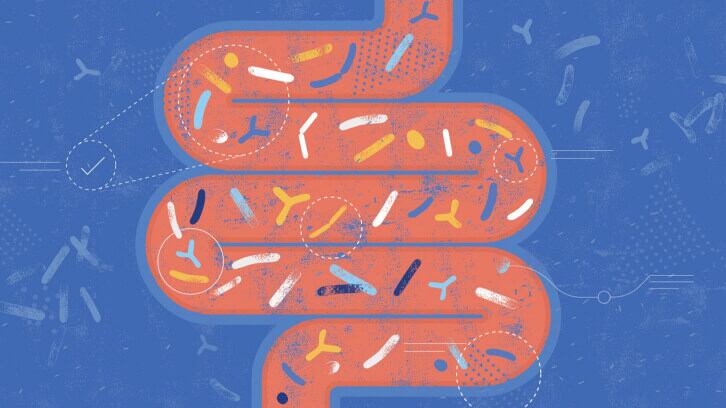Data from 268 people participating in the Korean Biobank Innovations for chronic Cerebrovascular disease With ALZheimer’s disease Study (BICWALZS) indicated that lower abundance of Bifidobacteria was associated with poor current cognitive function.
Moreover, higher levels of degradation of GABA (gamma-aminobutyric acid), a naturally-occurring amino acid and key inhibitory neurotransmitter in the brain, were associated with greater current depression severity, said the researchers.
“This is the first longitudinal, transdiagnostic study that investigated the current and future impacts of the gut microbiome on cognitive decline and depressive symptoms in a large sample of older adults,” they wrote in Molecular Psychiatry. “As such, it represents an essential step forward at the intersection of psychiatry, aging and the microbiome.
“Our results suggest that the gut microbiome contributes to cognitive function and depressive symptoms across stages of cognitive impairment, whereby GABA-degrading microbiota species may be of particular interest.”
Microbiota-gut-brain axis
The study deepens our understanding of the ‘gut-brain axis,’ a bidirectional interaction between the GI tract and the nervous system and implicates the ability of specific strains to produce key neurotransmitters like GABA, serotonin and dopamine.
It examined not only current cognitive and psychiatric states but also followed 70 participants for a further two years.
The researchers reported that gut microbiota composition at the start of the study is a predictor of cognitive function and depressive symptoms two years later, noting that worse two-year cognitive function was linked to a lower relative abundance of Intestinibacter, “a hallmark of gut dysbiosis suggesting inflammation-driven cognitive decline and increased biological aging.”
Moreover, depression after the two-year follow up was associated with lower glutamate degradation at the start of the study. The researchers noted that this link to potential and future cognitive decline points to the role of the gut-brain axis in glutamate excitotoxicity leading to neurodegeneration.
“The microbiome may predict future cognitive decline and depressive symptoms, potentially offering a biomarker for identifying people who may experience cognitive or mood decline,” the study concluded. "Such models would be of great benefit for treatment personalization which may alter disease progression and increase quality of life among the elderly.”
Source: Molecular Psychiatry
Published online ahead of print, doi: 10.1038/s41380-024-02551-3
“Gut microbiome predicts cognitive function and depressive symptoms in late life”
Authors: A. Kolobaric, et al.
IPA World Congress + Probiota Americas 2024

The Gut-Brain Axis is just one of the themes featured at the upcoming IPA World Congress + Probiota Americas, June 10-12 in Salt Lake City. The three-day event will also feature sessions covering Microbiome Modulation to Support Women’s Health, Prebiotics, Healthcare Practitioners, Retailer Insights, Companion Animals, Tech Advances, and much more.
For more information and to register, click HERE.
Speakers are affiliated with: The University of California, Kroger, Whole Foods Market, Nouri, Maiome, SuperGut, Nestlé Health Science, FTC, FDA, Health Canada, University Milan, Georgetown University, International Probiotics Association, Beneficial Microbes Consultancy, SPINS, Seventure Partners, National Animal Supplement Council, Örebro University, Novonesis, IFF, ADM, EpiCor/ Cargill, Kaneka Probiotics, BioGrowing, Solnul, CanBiocin, Swift Strategy Group, Morinaga, Jona, Preebio, HelloBiome, BioMilq, Lawrence Berkeley National Laboratory and many more.


